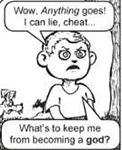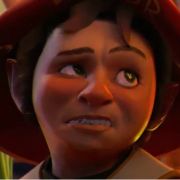|
I am going to do a write today
|
|
|
|

|
| # ? May 17, 2024 14:53 |
|
nut posted:I am going to do a write today gently caress yea
|
|
|
|
Gonna start this lovely book I was supposed to have finished by next month 
|
|
|
|
General Battuta posted:Gonna start this lovely book I was supposed to have finished by next month take the moon posted:also if if I ever punked anyone for not writing w/ the pathetic excuse of they have a job im sorry lol. I have not written a word each day I've worked. Lit. Get home and pass out I use an app for this just because I like to keep track of the time I spend and see for myself how much time I'm actually setting aside, but I give myself a goal of 1 hour per day. This is just me, but 1 hour actually sounds like it's too little and I feel guilty for it, but when I actually sit down and work for a solid hour with no distractions, I actually make progress. I also almost always find that when the hour is up, I'm usually in the zone and don't want to stop. Find a slot of time ideal for you, wether it's morning or evening and give yourself a timeslot. It doesn't have to be an hour, it could be 10 minutes, but when that time hits, do it. If you can't think of anything or the words don't come, that's okay, because thinking of what to write and mulling over ideas counts as far as I'm concerned. As someone trying to write a murder mystery VN, thinking on the topic, coming up with ideas for twists, motives, red herrings etc. are all things that don't go on paper (unless I'm taking notes of promising ideas) but it still counts as working on it, in my eyes.
|
|
|
|
e: deleted lol it wasnt that bad tho who cares
take the moon fucked around with this message at 15:41 on May 28, 2020 |
|
|
|
edit: deleted too
SimonChris fucked around with this message at 16:09 on May 28, 2020 |
|
|
|
|
If you have a short story you're shopping around and want the chance to win a full critique from an extremely accomplished, widely-published, award-winning writer and editor, come see my post in the Thunderdome thread, where you could win it for a $10 donation.
|
|
|
|
I decided to shelf my finished novel and start another. Thereís a lot of complex feelings going into this but mainly I just donít think Iím ready to do it justice. Itís a split PoV in an original fantasy world with a magic system Iím not even sure I understand. Itís too much to handle getting all that on the page clearly while also trying to perfect my pacing and voice, the two most vital things in middle grade/kidlit. So Iím starting up a new one. Iíve found a story idea that will let me really zero in on my voice and pacing without worrying so much about also setting up a complex fantasy setting. Plus it seems like it will be fun. The big thing is Iím not abandoning my other novel, just setting it aside while I polish my skills a bit more. It was naive to think the first novel I ever finished would be publishable without a whole lot more practice and growth.
|
|
|
|
i have trashed so many books or atrophied them as they say. i think if youre not feeling anything for whatever reason theres no reason to go hard on it its good just to stay in the game plus the feel of starting a new book lol that being said the ms i feel strongest about is my first and its the one that im editing hard rn
|
|
|
|
I've been writing and submitting seriously for the past few years and started collecting personal rejections from fraction-of-a-percent acceptance lit mags (on duotrope). I just received another that was super detailed and encouraging (and from multiple people) but also maddening because I was so close. I've noticed a rejection trend across multiple stories and genres of 'writing not quite strong enough' or 'not smoothly written enough', which I am interpreting as meaning my sentence-level prose, like the actual craft, isn't there yet. I think a big part of my issue is I'm a lovely editor/rewriter. My rough drafts are far less rough than average, but they're still rough drafts and I don't spend enough time on them. Even then, while I feel confident pointing out the bad sentences, I don't necessarily have a grasp on which ones classify as 'not smooth enough'. My wife is a business writer and regularly takes classes. She suggested I take a workshop class or two. I'm somewhat resistant to this due to past experiences where workshopping was entirely made up of genre and wish fulfillment or otherwise fetishized Hemingway and minimalist writing (excuse me, long sentences are winding and beautiful and endlessly deliver gifts.) But it's worth a shot, I think? Anyone want to share their experiences? I live a few blocks away from this place: https://www.writingsalons.com/, which doesn't matter in Covid times but hopefully will matter again soon. I figure I'd email them to check which of the two fiction workshops fits what I'm looking for better. In any case, I'd love to hear some advice on this particular topic.
|
|
|
|
ultrachrist posted:I've been writing and submitting seriously for the past few years and started collecting personal rejections from fraction-of-a-percent acceptance lit mags (on duotrope). I just received another that was super detailed and encouraging (and from multiple people) but also maddening because I was so close. I've noticed a rejection trend across multiple stories and genres of 'writing not quite strong enough' or 'not smoothly written enough', which I am interpreting as meaning my sentence-level prose, like the actual craft, isn't there yet. I think a big part of my issue is I'm a lovely editor/rewriter. My rough drafts are far less rough than average, but they're still rough drafts and I don't spend enough time on them. Even then, while I feel confident pointing out the bad sentences, I don't necessarily have a grasp on which ones classify as 'not smooth enough'. I'm not sure what advice you're looking for. Some workshops (or classes with focused critique) are amazing and can really help you hone what you're doing (or not doing) and push you to grow in ways that are difficult to accomplish without outside feedback, and some of them are hot wet poo poo where you have to attempt to seriously critique absolute drivel and then politely ignore critiques from people you wouldn't let write the copy on a bag of dog food. A workshop (or a class with focused critique) is only going to be as good as the person running it and the people in it. The only way to find out which is which is to try them out. I would caution not to prejudge too muchósome excellent writers are awful at giving good critique, and some mediocre writers are quite good at it. Wallet fucked around with this message at 15:28 on Jun 9, 2020 |
|
|
|
Obligatory "have you tried thunderdome  " post. " post.This week's prompt is a bit experimental, but as a writing group, they're pretty useful and might be able to help you hammer out issues with your prose, if you're all right with working in smaller flash-fiction length things. Most Thunderdome stories are basically glorified rough drafts or first drafts anyway. Also, have you tried critiquing other stories before? People don't often consider the connection between critiquing other work and improving their own work, but it was after I started critically reading other peoples' short stories that I began to find the things I liked and the things I didn't, and was able to apply those to my own writing.
|
|
|
|
Djeser posted:"have you tried thunderdome 
|
|
|
|
Wallet posted:I'm not sure what advice you're looking for. Some workshops (or classes with focused critique) are amazing and can really help you hone what you're doing (or not doing) and push you to grow in ways that are difficult to accomplish without outside feedback, and some of them are hot wet poo poo where you have to attempt to seriously critique absolute drivel and then politely ignore critiques from people you wouldn't let write the copy on a bag of dog food. A workshop (or a class with focused critique) is only going to be as good as the person running it and the people in it. w/r/t what I'm looking for I guess general advice on getting over the help as well as hearing past experiences with focused critique classes or ways to find good workshops. It's a little more daunting that it could be a waste of time when dropping a few hundred bucks for the experience. Good call out on not pre-judging though. Djeser posted:Obligatory "have you tried thunderdome I've tried thunderdome before, years ago. I think it's neat and I should give it a shot again sometime but it's not really what I'm looking for. It takes me about a month or two to write and polish a good 3500-4500 word story and that's the point I need to improve upon. I haven't critiqued fiction in years, that's a good point. I used to critique screenplays and now I occasionally critique essays and the latter definitely helped me zero in on eliminating passive voice unless 1000% considered and intended and now a blinding light shines from the page every time I see the word 'just' or 'simply'.
|
|
|
PiCroft posted:I use an app for this just because I like to keep track of the time I spend and see for myself how much time I'm actually setting aside, but I give myself a goal of 1 hour per day. This is just me, but 1 hour actually sounds like it's too little and I feel guilty for it, but when I actually sit down and work for a solid hour with no distractions, I actually make progress. I also almost always find that when the hour is up, I'm usually in the zone and don't want to stop. What's the app?
|
|
|
|
|
Sulla Faex posted:What's the app? ATracker. Itís meant to track all sorts of activities but I only use it for scheduling and tracking time I work on my story. Itís less effort than having a separate timer, alarm and spreadsheet for looking back at progress made.
|
|
|
|
I wrote a book a while back and received some excellent advice from this thread to do with editing it with sebmojo (I think) even going above and beyond and editing 500 words into readable form. Since then I have written several short stories. I wrote the novel via the discovery method and frankly it was painful and made editing (which I still haven't finished) a chore. I also wrote some of the short stories this way but half planned two others and found writing the stories I had actually planned a lot of fun. The problem I have is I don't really know how to go about planning a story properly, I only planned lightly and feel as if I could do more. So how do the people in this thread plan their stories? how long does it usually take? Any good tips? Thanks in advance for any answers.
|
|
|
|
bessantj posted:So how do the people in this thread plan their stories? how long does it usually take? Any good tips? Thanks in advance for any answers. Start with an idea and expand upon it a little bit at a time. Many people start out with a character in mind or a plot in mind, and then write a world around the character or plot, expanding as it needs to be filled in. Something I wrote in this thread quite a while ago: quote:A story shows a character in need of a change and places them in some kind of crisis which forces a reaction, it tries to force a change. It could be a change for the better, it could be a change for the worse (or rarely it could show how the character hasn't changed at all, but that can be trickier). Both the story arc and your character's arc should more-or-less mirror the progress of the other and climax in the same place. The climax of the plot should reflect the ultimate expression of how your character has grown from the start of the story. If you have an idea for a character, you can think about what sort of challenges would be difficult for that character to overcome, and that can help build a plot. If you have an idea for a plot, you can think about what sort of character would be the right - or WRONG - person to be forced into dealing with it.
|
|
|
|
bessantj posted:I wrote a book a while back and received some excellent advice from this thread to do with editing it with sebmojo (I think) even going above and beyond and editing 500 words into readable form. Since then I have written several short stories. I wrote the novel via the discovery method and frankly it was painful and made editing (which I still haven't finished) a chore. I also wrote some of the short stories this way but half planned two others and found writing the stories I had actually planned a lot of fun. The problem I have is I don't really know how to go about planning a story properly, I only planned lightly and feel as if I could do more. So how do the people in this thread plan their stories? how long does it usually take? Any good tips? Thanks in advance for any answers. Plan? Stories?  E: okay, so I don't sound like a flippant rear end, the answer really depends on the writer and how they prefer to work, as well as what kind of inspiration you happen to get. I'll just talk about myself since I expect there are at least 3 opinions for every writer. For me, it depends on what has sparked my story. Most times I'll just get a scene in may head. As an example, I once saw a young looking woman eating breakfast in a hotel restaurant with a young girl (like seven), and they caught my attention because the woman looked too young to have a daughter, and the young girl was looking at an adult newspaper and talking to the woman about it. My brain started firing on "what was their story"? Was she a young mom alone on a trip with a daughter? Was she a legal guardian? Why was the young girl asking about stuff in the newspaper? What were they talking about? And from there my mind grew a certain kind of story and situation, and background that I fully intend to flesh out into a story. I have a general outline in mind that may or may not end up being what I go with in the end. Other times, I want to tell a particular end to end story and I outline it out with what happens first, what comes next, how it resolves. However, personally I struggle with this because I find myself too constrained by my outline. When I start writing, the characters take off and do things I hadn't expected making the story veer wildly off course, or I find gaps and holes in the outline that make me want to just shelve the whole thing because I get sidetracked with "well, why wouldn't she just shoot the guy when she had the chance?" or something, and then I start backtracking, and then I can't find my way back into the outline and make it not feel forced. Occasionally I get a mood, or an emotion, or an image of something interesting, and I'll just sit down and write, not having any idea what I am going to find. I like those the best, because I feel that I pour feeling into them better than most, however, they suffer a higher percentage of death because they more often end up going ... nowhere in the end. Having said all this, I still save every abortive attempt because I may come back to them later or I may salvage bits of them. Personally, I am fascinated with the process of writing, and I read and listen to a lot of things about it. The shortest answer is the best way is what works for you. You have to develop the way your brain works. It might coincide with trying something someone else suggests, but at the end of the day, a system that doesn't work for you is going to be an albatross. I recommend trying it all. Sit down and just type the first thing that pops in your head without any planning. Then sit down and map out an outline or make index cards in detail of the story and then write to fill in details. If you find you can't get even through the outline - that's probably not your jam. That's fine. There is no "I could have done more." Or more accurately, EVERY story is "I could have done more", and you just get sick of the drat thing and either publish or trash it. One last thing to keep in mind. Your first draft is just to vomit the story out. It is not sacrosanct, and should almost never be kept intact unless you happen to miraculously poo poo out the best story ever penned to paper, and that never happens, no matter what people say. If things don't work, you can always re-write, and the beauty is that nobody will ever know you did that unless you tell them. Doctor Zero fucked around with this message at 18:37 on Jun 16, 2020 |
|
|
|
ultrachrist posted:I've been writing and submitting seriously for the past few years and started collecting personal rejections from fraction-of-a-percent acceptance lit mags (on duotrope). I just received another that was super detailed and encouraging (and from multiple people) but also maddening because I was so close. I've noticed a rejection trend across multiple stories and genres of 'writing not quite strong enough' or 'not smoothly written enough', which I am interpreting as meaning my sentence-level prose, like the actual craft, isn't there yet. I think a big part of my issue is I'm a lovely editor/rewriter. My rough drafts are far less rough than average, but they're still rough drafts and I don't spend enough time on them. Even then, while I feel confident pointing out the bad sentences, I don't necessarily have a grasp on which ones classify as 'not smooth enough'. Write more. Read more. It's hard to give specific advice without seeing a sample. Could you post a snippet?
|
|
|
|
yea I was thinking about a flippant answer but figured that wasn't really what op???? poster was looking for. Ive never really liked anything I plan out too much starch in the suit you know? different strokes tons of Nobel writing software exists for stuff like that tho, the best stuff free & cloud based so maybe look into that?
|
|
|
|
I as because as I say I wrote a book and it ended up being nearly 155,000 words long. A third of which can probably be done away with. The problem I found was I wrote a character as a very minor character that did little but towards the end of the book turned them into a major character then had to go back to earlier chapters and add things it so that their actions later in the book made sense. This I found a real chore and sometimes I would forget what is going on with the story and in the end I think it made it more of a mess and difficult to edit than it needed to be. However, when I wrote a couple of short stories where I had made an outline I found the actual process of writing more enjoyable. I don't think I have full grasp of the planing process and was wondering if the posters here had some experience of the process and any tips. Maybe it's just a case of what Stabbey_the_Clown says and practise at that.
|
|
|
|
bessantj posted:So how do the people in this thread plan their stories? how long does it usually take? Any good tips? Thanks in advance for any answers. In contrast to most of the other folks who have posted about this so far, I'm very much on the planning/outlining side of things unless it's something very short. Like Doctor Zero said you should experiment with different approaches until you find what works for you, but for the sake of some contrast I basically just go through a bunch of refinement steps. Sorry for the I'm going to assume that you already have some kind of germinal idea if you're looking at planning. I'll usually ruminate on that until I think I know what kind of story I'll be telling (I'll find out later that I'm wrong). When that's developed enough that I think it's worth putting some time into, I start with an extremely loose outlineóbasically just a bulleted list of events for each PoV character. If there's a particular scene that was part of how I arrived at the idea that might have a bit more detail, but the entries are usually at most two sentences. I'm just paying attention to having a coherent series of events that I think is capable of being a compelling story for each major character. After the loose outline is in decent shape i'll sequence all of the bullet points together in a spreadsheet or a diagramming program (I've recently used draw.io); if there's multiple PoVs I color code each entry. Things will get reordered a bunch to make more sense or to create connections between what's going on for different characters and so on which is still very easy to do at this point. Here I'm mostly looking at the story working as a wholeóare the characters and the events creating interesting contrasts? Do they intersect in satisfying ways? Does the whole thing hang together? My next step is to put some meat on the bones. If in the first step I had an entry that just said "Bob has a huge fight with his girlfriend and she leaves him" I now want to at least have some ideas recorded about why they're fighting and how Bob feels about it. I'm also looking at filling in all of the events between the other events that set them up or contextualize them or move characters into position between them. I'll start putting them into (very loose) chapters to cluster them together at this point. I'll then do another pass where I break those entries down into actual scenes, splitting some of my loose chapters in half and merging others. I'll write a few hundred words of outline for each scene often including some bits of dialogue which helps me figure out if a scene is going to work or if I need to rethink it. While I'm doing that I flag (in bold or bright red or whatever) every question that is going to be an impediment when it comes time to actually write it. If the characters are talking about the local bowling alley and it doesn't have a name, I need to figure one out and put it in there. If one of the characters has experience with basket weaving and it's going to become relevant I want that research done beforehand and the important bits written down somewhere. My final pass is answering all of those questions that I flagged previously and expanding things out into a scene that I feel ready to sit down and write. My final outline for any given scene will probably end up being somewhere between 250 and 1,000 words. Laid out that way it sounds very rigid (which I guess it is compared to winging it), but lots of things end up getting changed or reworked or added or removed causing other things to shift around them and so on. It's never too late to make major changes, it's just more work the further along you are when you do it. As far as how long it takes, that really depends on how smoothly it goes: sometimes you get near the end and realize something isn't working so you make some major changes and have to rewrite half of the outline, sometimes you do that more than once. Wallet fucked around with this message at 23:06 on Jun 16, 2020 |
|
|
|
Thatís a really cool approach. I like that. I have exactly one experience writing a 100k+ work and it was for NaNiWriMo so take this with a grain of inexperienced salt. When I started on that book, I started with a good idea of the first two chapters, and the last. I knew what I wanted in the middle in huge broad strokes, but it was nebulous, similar to how I approach short fiction. I banged out the first three chapters easy as pie but started the fourth, got halfway through and realized that I wasnít sure how the major characters would get from point A to B in detail enough to continue. I needed to write why the characters were getting involved and where they would be going in convincing enough detail and the format of NaNiWriMo meant I did not have time to sit and think about it every drat chapter. So I used the index card feature in Scrivener, laid out the chapters, the major events and who would be needed, and briefly how it mattered. Then I looked at it and realized that I could shuffle this thing earlier, and that thing could be taken out completely because it didnít really matter and I didnít have time to go on side trips, etc. If I needed a character I hadnít considered, Iíd add them ďoh crap, the bad guys need a leader in the final battle, and he could have been the one back in chapter 5Ē Then I continued writing. I think it pretty much worked (although the work itself was questionable) in the sense that I could play around within a chapter so long as I set it up to come out aimed at the plan for the next chapter. If it didnít but the chapter end still felt natural I could add small connecting chapters. When I get to the point where I start working on a longer work again, this is what I plan to do.
|
|
|
|
Wallet posted:In contrast to most of the other folks who have posted about this so far, I'm very much on the planning/outlining side of things unless it's something very short. Like Doctor Zero said you should experiment with different approaches until you find what works for you, but for the sake of some contrast I basically just go through a bunch of refinement steps. Sorry for the Thanks very much. This is some very useful advice. I think working this way will make it easier if I want to change something later in the book.
|
|
|
|
I'm trying my hand at a novel, only it's in a journal format. It's a post-apocalyptic setting that starts immediately after either an A) EMP goes off, destroying almost all electronic devices, or B) a coronal mass ejection, a kind of major solar flare, which could also screw up all of the Earth's electronics, though it'd be less damage than an EMP. I want it to be vague for the reader, because a random guy trying to survive isn't going to know what happened. I kind of got the seed of the idea from reading Day by Day Armageddon (a zombie novel written in a journal format) years ago, and recently reading an article on coronal mass ejections. I feel like the journal format kind of gives me a lot of liberties as a novice writer, because the reader sees everything from the journal writer's point of view. Any fuckup on my part can just be attributed to the journal writer!  . Being that this would be my first novel, I think this might be something that I could actually accomplish. I've got around 9k words so far. I have a very vague outline, mostly just a few bullet points and I still have to decide whether I'm going to end it in a hopeful way, or have a sad ending. I'm also undecided on where to go with the story at multiple points, just because I'm not sure how to make the novel more compelling. I am really enjoying reading this thread. The posts about organizing an outline are really helpful, so thank you guys for that. . Being that this would be my first novel, I think this might be something that I could actually accomplish. I've got around 9k words so far. I have a very vague outline, mostly just a few bullet points and I still have to decide whether I'm going to end it in a hopeful way, or have a sad ending. I'm also undecided on where to go with the story at multiple points, just because I'm not sure how to make the novel more compelling. I am really enjoying reading this thread. The posts about organizing an outline are really helpful, so thank you guys for that.I guess my biggest question here is do you guys think writing a journal style novel is lame?
|
|
|
|
my fiction advice is dont put in zumbos lol the expanse ot away w/ it cuz it was hardly the everything. but like zumbos are hard no. like.... please dont (i may use them lol)
|
|
|
|
There are plenty of good epistolary style novels. The only major problem is you can't do real time action.
|
|
|
|
What the Christ is a zumbo?
|
|
|
|
a zombie
|
|
|
|
Doctor Zero posted:Write more. Read more. I read every day and I write almost every day. I do the thing where missing 1 day is OK but never 2 in a row. Sure, here's the first scene of the story I was referencing: Story posted:The first time it happens she is at a so-called happy hour sipping a martini that tastes like a corroded battery. She is surrounded by the type of people you label colleagues, not friends. Dave and Rahul are leaned forward listening to the new girl, Val, tell a story about her recent trip to Myanmar, replete with last-minute plan changes, amusing cultural mishaps, and lengthy pauses meant to build suspense. The story is dull. Everyone is smiling. She is not smiling but her mask is. Val is presenting as beautiful today, which may play a part in Dave and Rahulís apparent interest in the terribly dull story. Or wait, maybe the story isnít dull at all, but instead fantastically interesting, and it only appears dull because the part of her brain that determines which stories are dull and which are fantastically interesting has only just now flared out like a sad pink firework.
|
|
|
|
Doctor Zero posted:What the Christ is a zumbo? Welcome to Zumbocom. Anything is possible at Zumbocom. To Zumbocom welcome.
|
|
|
|
SimonChris posted:Speaking of Fantasy and Science fiction, the editor has some really good advice in his Duotrope interview: Thanks for this. Im on the submitting stage of my fantasy novel and whoo boy am i looking forward to it.
|
|
|
|
ultrachrist posted:I read every day and I write almost every day. I do the thing where missing 1 day is OK but never 2 in a row. Are you looking for criticism here on that sample? Because Id love it if you stated the character's name in the first sentence and "are leaned forward" needs another look grammatically.
|
|
|
|
ultrachrist posted:I read every day and I write almost every day. I do the thing where missing 1 day is OK but never 2 in a row. Given the content I'm guessing that all of the "she is" is for emphasis but for me it reads as unintentionally clumsy rather than intentionally emphatic. Outside of that it looks like it needs some general editing. In your original post about this you mentioned not knowing how to find the "bad" sentences that need work which seems more like an approach for copy editing than editing for style. What jumps out to me stylistically in the sample you posted is a lot of needless words that could be edited out and a few instances of sloppy/repetitive word choice.
|
|
|
|
Thanks for the feedback both of you. Yes, I was opening that up to critique after Doctor Zero asked me to post. Shageletic posted:Are you looking for criticism here on that sample? Because Id love it if you stated the character's name in the first sentence and "are leaned forward" needs another look grammatically. The protag is never named. I agree 'are leaned forward' is awkward and I'll give it another pass. The dangers of writing something already happening in present tense. Wallet posted:I'm going to assume that you are looking for some kind of criticism or you wouldn't have posted the sample. Not completely following your last paragraph. To me, copyediting is finding typos or fixing tense. What I need to improve on is exactly what you described: clumsy/repetitive/unnecessary.
|
|
|
|
The prose snagged at me a couple of times but in general I think you've got a really distinctive voice that's not the same close third person reportage everybody uses in everything. I like it. Keep pushing at it.
|
|
|
|
ultrachrist posted:I read every day and I write almost every day. I do the thing where missing 1 day is OK but never 2 in a row. I get why you are getting the feedback you are getting. First off, a couple of things: You have a good "voice." I can see why you are starting to get more and more personalized feedback. Your writing is enjoyable and capable. I found myself interested. I wanted to know more. I didn't start reading and mentally roll my eyes. That's battle one. Here comes the "however." It doesn't read like it's been revised enough. You probably edited quite a bit, but it doesn't read like it's been polished. It reads like you were editing it while it was too fresh in your mind. I think you have the scene well established in your head, but I had a hard time figuring out what was going on, and not in the good way. I had to re-read it a few times over to see if I understood. If you didn't already, I suggest you set this aside for 4-6 weeks and write something else. I think you need to come back and look at this with fresh eyes. I do that with everything (except Thunderdome, because there's no time), and it helps a lot to come back after it has aged a bit and I can better look at it objectively. More specifically. 1. You have a problem with an unnamed female protagonist in a scene with another named female. I had a hard time parsing which person "she/her" was talking about, the protagonist or Val. Does the protagonist really have to be unnamed? Think hard on this. if so why? I mean why does it matter to the story, not to you. If it matters, you have to be extra careful with making clear to whom the pronouns belong. 2. You have too many words. You use a phrase to say something that could be said with a word, or worse yet, not even be said at all. I recommend going back over the story word by word, phrase by phrase, and evaluate each if it matters. Can you take it out and it still reads fine? Do it. I'm not saying turn it into See Dick run. I mean if you can do the same job evoking the scene without something, out it goes. Also there are sentences that could be put together more effectively, since there doesn't seem like enough info to be in two sentences. 3. You have a nice strong opening line. I was hooked. By the time I got to the end I went .... "Wait. Was that the 'it' that was the first time? Social awkwardness? Or was it the quasi Mandela effect going on? If it was the former, then I don't see what the deal is. She seems to have been socially awkward before. If it's the misremembering, it needs to be played up a bit more. You also go a dangerously long time between the first line, and getting to what "it" is. You might need a bit more in between to remind us. 4. You don't play consistently with imagery. The fireworks line, the mask ears, are just a little ... off and could be tightened up. I think you are going for a cadence to set an expectation and change it, but it feels flat in some cases. Again, I like it. I hope you can improve it. I'm interested in reading the whole thing, TBQH. Let me give you a couple of specific examples: quote:The first time it happens she is at a so-called happy hour sipping a martini that tastes like a corroded battery. She is surrounded by the type of people you label colleagues, not friends. Let me pare this down a little and see how this reads. quote:The first time it happens she is at a so-called happy hour sipping a martini that tastes like a corroded battery surrounded by people you label colleagues, not friends. "is surrounded" - passive. "type of people" - unnecessary. However, if I just cut them off, your second line is too short, so I ran them together. Keep in mind you don't HAVE to do it this way, this is for illustrative purposes. I also am aware it sounds like the corroded battery is surrounded, so the phrase order needs to be changed. Again, example. quote:The story is dull. Everyone is smiling. She is not smiling but her mask is. Val is presenting as beautiful today, which may play a part in Dave and Rahulís apparent interest in the terribly dull story. Or wait, maybe the story isnít dull at all, but instead fantastically interesting, and it only appears dull because the part of her brain that determines which stories are dull and which are fantastically interesting has only just now flared out like a sad pink firework. This is where it started to go wrong for me. You talk about the protagonist's mask and then you say "Val is presenting" so then I thought the mask was Val's, and so is the emotion, and it wasn't until like two paragraphs later that I realized my mistake and had to go back and read again. Does Val also have a mask? I'm not sure. Or is it only the protagonist? If the latter, then don't use phrases that make it sound like Val has one. Does Val matter? Does she show up later? If not, go ahead and make her a one dimensional character. If so, then it needs to be clarified. Having a name for the protagonist would help A LOT. Here's 3 sentences that don't need to be so short. I try to use short sentences for tension, action, or effect. Consider this: quote:The story is dull, yet everyone is smiling but her. Others might notice were it not for the smile on her mask. Let me show you something else: quote:Val is presenting as beautiful today, which may play a part in Dave and Rahulís apparent interest in the terribly dull story. Or You could cut those out, and it still reads fine. I am playing with your style now though. However, you use "terribly dull" and "fantastically interesting" several more times further on. Adverbs are evil. A necessary evil, sure, but evil. The first ones here, I give you a pass. The later ones just sound repetitive. Rip those out. We've already established the intensity of dull/interesting Also the "flared out" in sad fireworks" I dig. However, 'flared' and 'sad' don't go well together. 'Flared" is bright and energetic. 'Sad' implies weak and pathetic. You probably were trying the ironic flip, but it didn't catch here. Just stick to the 'sad' metaphor. quote:A detail in Valís story catches her attention. She imagines the hare-like ears of her mask perking Try these cuts above. You've already said it's her imagination, so you don't need to say it again. Also, "scanning her memory" is super awkward and reads fine without it. Unless she's a robot. quote:Valís fake eyebrows arch in annoyance. Dave and Rahulís faces are traffic lights turning green. "traffic lights turning green"? What does that mean? I like it, but I'm not sure how I'm supposed to read it in the context. Are they jealous? Are they about to also jump in and interrupt, the spell broken? Okay, anyway I won't go through the rest because it's more variations on the same theme. Nice job, honestly. You've got the hard part down - writing to capture attention. Now you need to work on making your prose better and tighter. I'd like to read it again after you take another stab at this.  e: I am aware of the irony of a poorly edited post stating the importance of proof reading. But I'm on the couch and it's hard to edit without a mouse. Doctor Zero fucked around with this message at 00:54 on Jun 21, 2020 |
|
|
|
Doctor Zero posted:The first time it happens she is at a so-called happy hour sipping a martini that tastes like a corroded battery surrounded by people you label colleagues, not friends.
|
|
|
|

|
| # ? May 17, 2024 14:53 |
|
Sham bam bamina! posted:I feel I should point out that the missing comma after "battery" here turns this into a very strange simile. I KNOW.  (I was literally just editing to say that
|
|
|





















